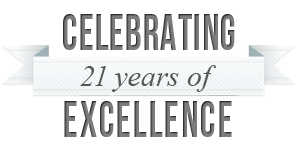I believe that investing in business education is one of the most important steps a woman can take to advance her career. When I joined the Rotman School of Management at the University of Toronto, it struck me that MBA programs were achieving only half of the female enrollment seen by other graduate programs such as law and medicine. And no surprise, this leads to fewer women in senior leadership roles in business. In response, I co-created the first Initiative for Women in Business at a Canadian business school to reduce the barriers that impede women’s advancement. Some examples include:
Barrier 1: Cultural Norms
North American culture values the “stay-at-home-mom” concept, where the woman sacrifices her career advancement for the family good. Even for women returning to the workforce after having a baby, there is a financial “motherhood gap” which gets bigger with every maternity leave they take.
Solution: Programs, such as our Back to Work program, help bridge the gap for women who have taken an absence from the workplace and offer free childcare for participants.
Barrier 2: Industry Norms
Some of the most coveted jobs for MBA students are in finance and consulting, which are known for “extreme jobs” (characterized by high compensation for long working hours). These jobs can be very satisfying, if that is where your ambitions lie, but for women with families it can be difficult to advance at the same pace as men.
Solution: The Women Initiative consults with companies on gender issues and the benefits of flexible working arrangements for all employees to help create a smoother path forward for women in business.
Barrier 3: Stereotypes and Biases
Of all barriers, this is the most pervasive and most difficult to overcome. The perceptions we carry about the abilities and potential of men and women ultimately create invisible barriers to women’s advancement in business.
Solution: Understanding and being honest with ourselves about the biases we each carry can help us recognize when they are standing in the way of a decision that is best for our company. At Rotman, we host speakers and workshops that address unconscious biases so we can change the way leaders identify high potential employees.
I believe that true advancement for women can only be achieved by tackling these barriers simultaneously, and that this will create positive change in the business landscape for men and women alike.







